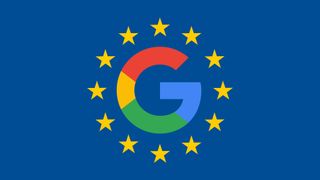ECJ may extend "right to be forgotten" ruling outside the EU
The three year legal battle between Google and France is nearly at its end

The European Court of Justice (ECJ) will rule on whether the 2014 "right to be forgotten" decision, compelling Google to comply with EU citizens' requests to be removed from search results, should be extended out of EU borders.
It's the culmination of a three year battle between France and Google. France wants the 2014 ruling to be applied universally, so that a user's personal information is removed from worldwide search results, not just within the EU. The French Commission Nationale de l'Informatique et des Liberts (CNIL) wants Google to go further which means French standards may have to be implemented on all Google search sites.
On the other hand, Google has said that extending this right beyond the EU would pose a risk in countries with stronger limits on freedom of speech and may even extend those limits universally as well. Google is worried that non-democratic countries may demand the same global power and that one country should not have the right to impose its rules on the citizens of another.
Peter Fleischer, global privacy counsel at Google, told IT Pro: "Since 2014, we've worked hard to implement the 'right to be forgotten' ruling thoughtfully and comprehensively in Europe. For the last 18 months, we've been defending the idea that each country should be able to balance freedom of expression and privacy in the way that it chooses, not in the way that another country chooses.
"We're doing this because we want to ensure that people have access to content that is legal in their country. We look forward to making our case at the European Court of Justice."
In the landmark 2014 case, the ECJ ruled that Google was required to remove all personal information that appears on its search engine. The ECJ found that search engines were "controllers" of personal data whereas Google had argued it simply hosted the content, rather than endorsing it. Exemptions to the rule included those who are prominent in the public eye, such as celebrities or politicians. This means that Google has to respond to any and all requests to remove private information that plaintiffs consider to be harmful.
Now, as reported by the Guardian, the ECJ will be asked to be more specific with its initial ruling and state whether sites have to delete links only in the country that requests it, or whether it's in the EU or globally.
Get the ITPro. daily newsletter
Receive our latest news, industry updates, featured resources and more. Sign up today to receive our FREE report on AI cyber crime & security - newly updated for 2024.
Zach Marzouk is a former ITPro, CloudPro, and ChannelPro staff writer, covering topics like security, privacy, worker rights, and startups, primarily in the Asia Pacific and the US regions. Zach joined ITPro in 2017 where he was introduced to the world of B2B technology as a junior staff writer, before he returned to Argentina in 2018, working in communications and as a copywriter. In 2021, he made his way back to ITPro as a staff writer during the pandemic, before joining the world of freelance in 2022.





